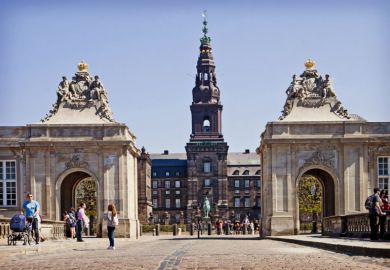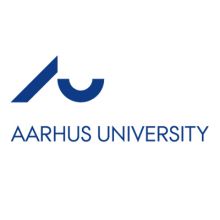Leading universities in Denmark are set to close several degree programmes and switch the medium of instruction from English to Danish in response to a government drive to reduce international student numbers.
Aalborg University has announced that it will close seven degree programmes, change the medium of instruction from English to Danish on six and put one English-language programme “on standby”. It means that nearly all bachelor’s programmes at the institution will be taught in Danish in future, with two courses at its smaller Esbjerg campus being the only exceptions.
Meanwhile, Aarhus University told Times Higher Education that it will close two degree programmes and change the language of instruction in two programmes and five specialisations or tracks.
In August, the Danish government announced that it would cut between 1,000 and 1,200 English-language university places across six of Denmark’s eight universities. It claimed that 42 per cent of graduates of English-language master’s programmes left the country after two years and that only a third of international students made a “positive contribution” to Danish public finances over their lifetime.
In a statement, Aalborg said that it had been ordered to “reduce admissions of international students by 290 in 2019” and had decided that closing programmes or changing the language of instruction were the “two most efficient ways” of achieving the reduction.
Hanne Tange, associate professor in the department of culture and global studies at Aalborg, said that she viewed the policy as the result of “an unholy alliance between a government looking for savings that will not annoy voters too much and a party [the Danish People’s Party] seeking any excuse to target Europe/foreigners/anything international”.
She added that as Danish universities cannot discriminate against European Union students in the admissions process, institutions have decided to cut or “renationalise” English-language programmes to abide by both the policy and the law.
“They are introducing Danish modules, which is a smart way to actually exclude all people not speaking Danish without actively discriminating against European students,” Dr Tange said.
The changes will make “international recruitment of staff difficult for the universities”, and foreign academics already in Denmark who are not fluent in Danish are in a “vulnerable position in case of further cuts where universities may have to reduce staff numbers”, she continued.
Niels Lehmann, vice-dean for education at Aarhus, said that “it’s highly regrettable that we have ended up in this situation” and added that the changes were a “step backwards in our efforts to internationalise our degree programmes”.
The University of Copenhagen and the University of Southern Denmark confirmed that they had been told to cut international student places by 120 and 160, respectively, but said that they had not yet come up with a plan to achieve this. Roskilde University said that it “expects to reduce the number of study places at our international study programmes” but added that it was in the process of deciding how to abide by the government’s policy.
Meanwhile, Copenhagen Business School said that it had been told to cut 400 places on finance, innovation and management master’s programmes, but said that it would not cancel any programmes or change the language of instruction of any courses.
Register to continue
Why register?
- Registration is free and only takes a moment
- Once registered, you can read 3 articles a month
- Sign up for our newsletter
Subscribe
Or subscribe for unlimited access to:
- Unlimited access to news, views, insights & reviews
- Digital editions
- Digital access to THE’s university and college rankings analysis
Already registered or a current subscriber?












